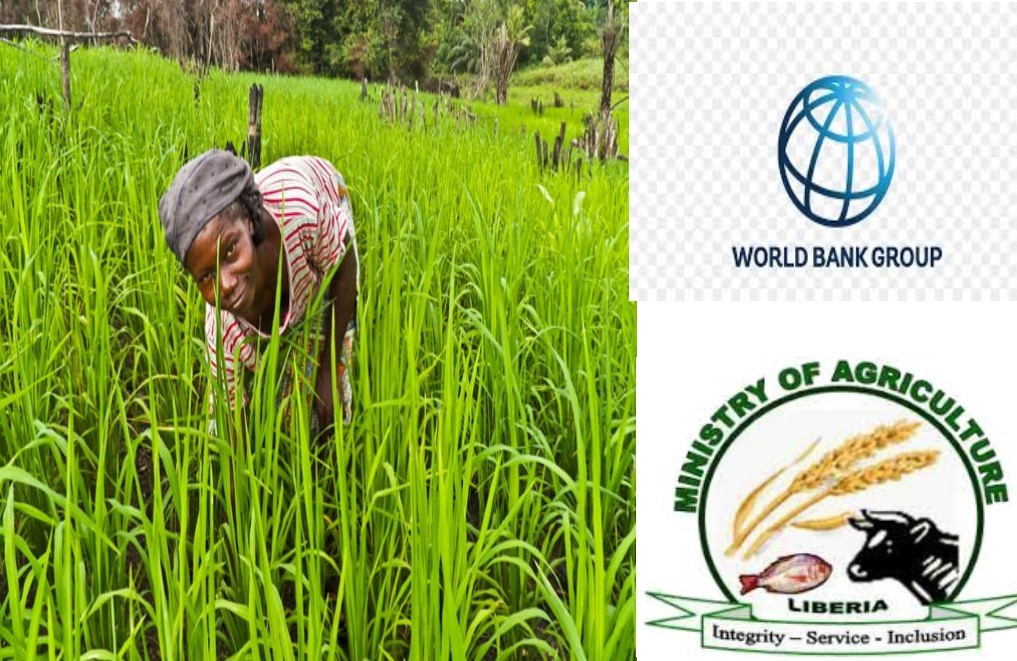The World Bank has approved a US$10.5 million program to support the plan for Liberia.
An Agriculture Ministry press release over the weekend says Liberia’s COVID-19 Food Security, Nutrition and Livelihood Plan under the Ministry of Agriculture (MoA) has received a major boost by this.
This support is expected to see the building of 100 small and growing processing businesses and the creation of 5,000 jobs.
“Upon a recent request from the GOL, the funding was drawn from the Contingency Emergency Response Component (CERC) within the World Bank’s funded Smallholder Agriculture Transformation and Agribusiness Revitalization Project (STAR-P) which kicked off in 2019.
Directed and supervised by the MoA, STAR-P seeks to increase agricultural productivity and commercialization of smallholder farmers for selected value chains in selected counties of Liberia.”
The country’s COVID-19 Food Security, Nutrition and Livelihood Plan formulated in March by the ministry, aims to mitigate Coronavirus’ threats and impacts on Liberia’s food security and livelihood and targets vulnerable low income families and local farmers.
The MoA, through the Program Management Unit (PMU), will manage the CERC funding with support from the STAR-P in partnership and collaboration with farmers’ groups, agro processors and cooperatives to support the plan’s implementation.
Eight components will be implemented over a three-month period, according to the MoA.
Those components, it says, include support to agricultural productive infrastructure through the construction of irrigation infrastructure, rehabilitation of tertiary roads that connect farmers to markets, and other forms of rural infrastructure, as well as input delivery networks.
The plan will also enhance support to agribusinesses from wholesalers to distributors and agro vets by assisting them with working capital.
Another aspect deals with support to organized distribution of seeds, fertilizers, and agro-chemicals to farmers in places where input markets are likely to face severe impacts.
Warehouses for agricultural commodities will also be constructed and turned over for private management services under the World Bank’s funding to the COVID-19 Food Security, Nutrition and Livelihood plan. There will, as well, be support assets building for small-scale food processors for milling, drying and packaging of maize, cassava, fishery products and rice.
At the same time, the project will help upgrade sanitary services through supply of water and sanitation services to agro allied industries. It will also ensure block grants for communal infrastructure such as boreholes, micro-power generation, drainage channels among others.
Other focus areas are mechanized farming, farmers’ grants that support on-farm irrigation equipment, procurement of equipment for poultry production, innovative solutions for small-scale preservation of food, biogas equipment for green management of agricultural waste, among others.
The plan envisions that 100,000 metric tons of staple food will have been produced at the end of the project, thus dropping “the country’s food import reliance by 15% and have a strategic food reserves for the first time”.

